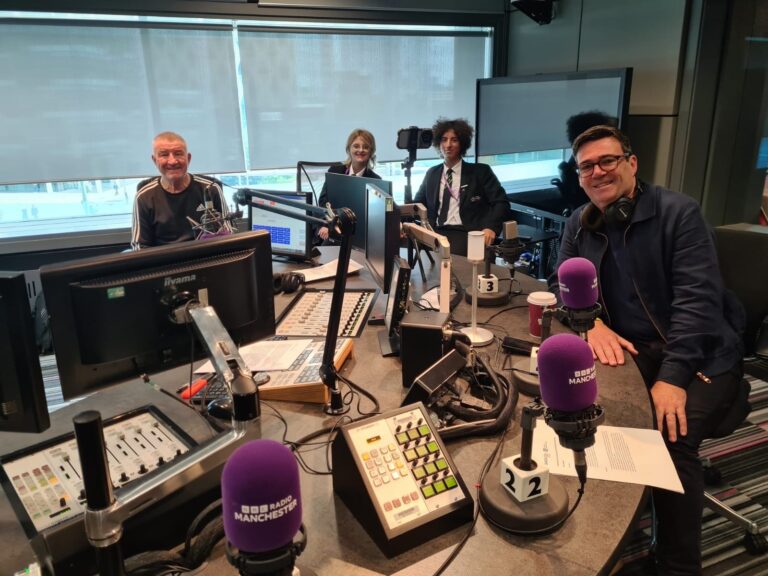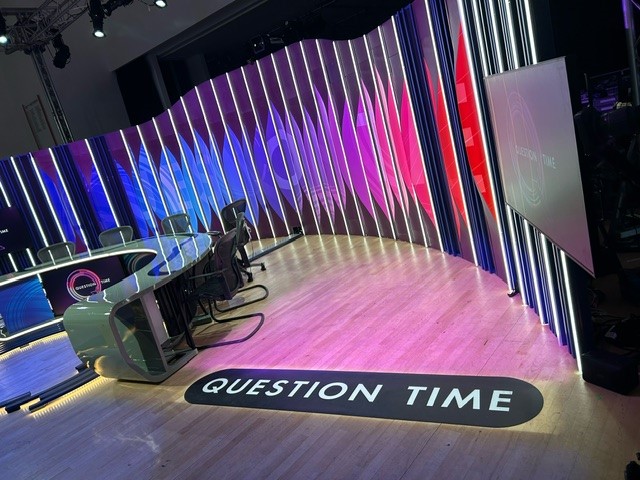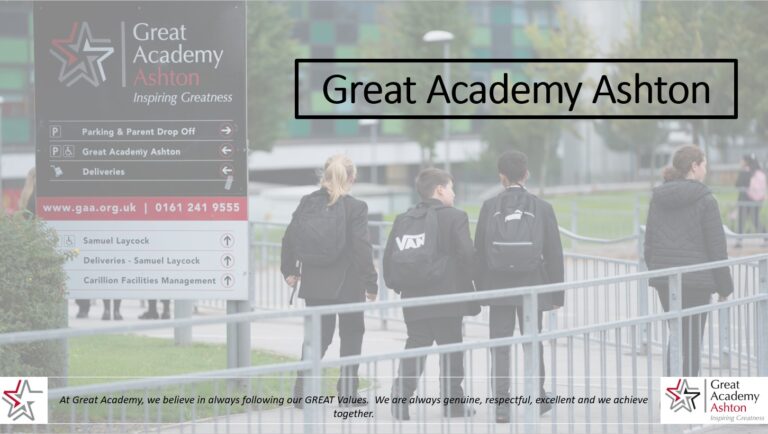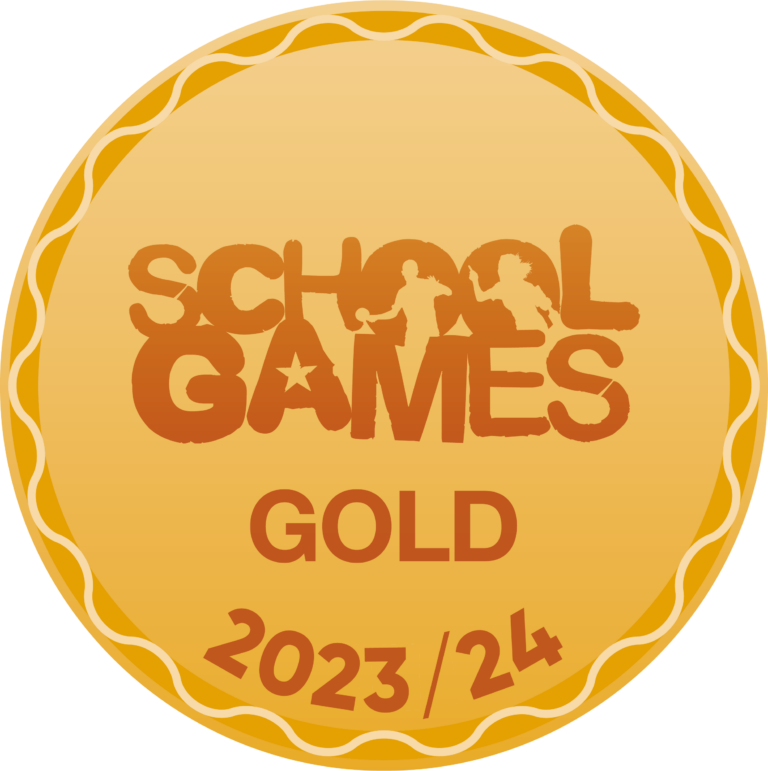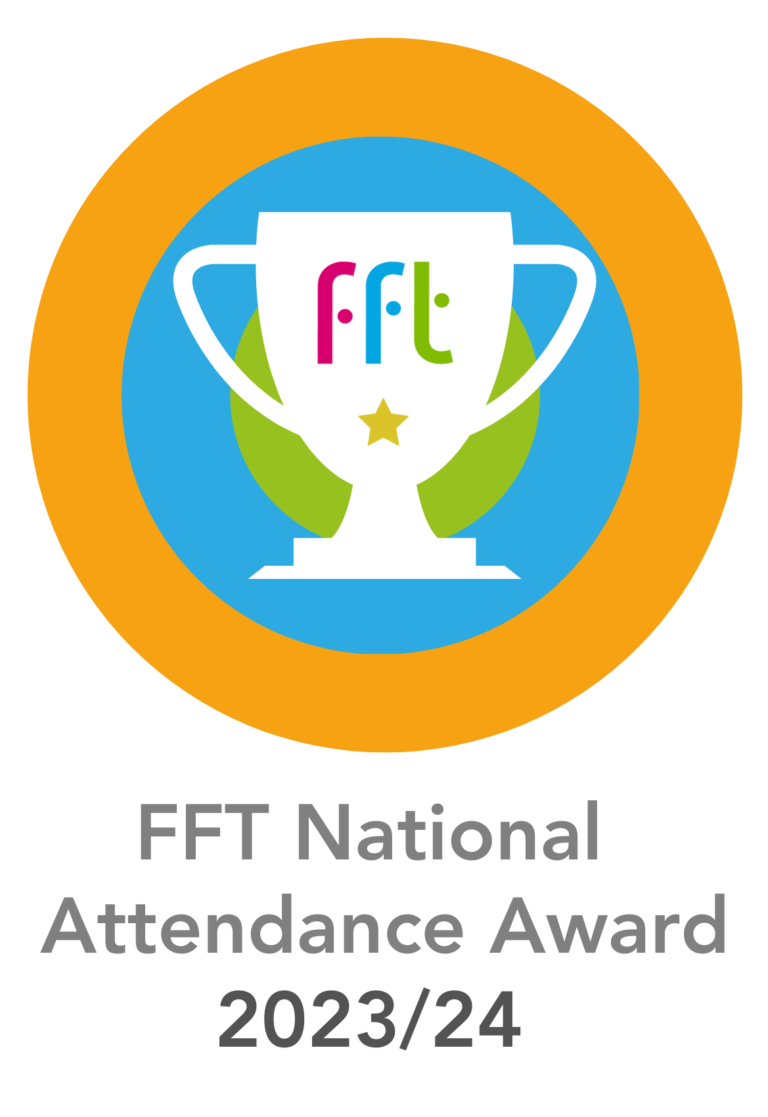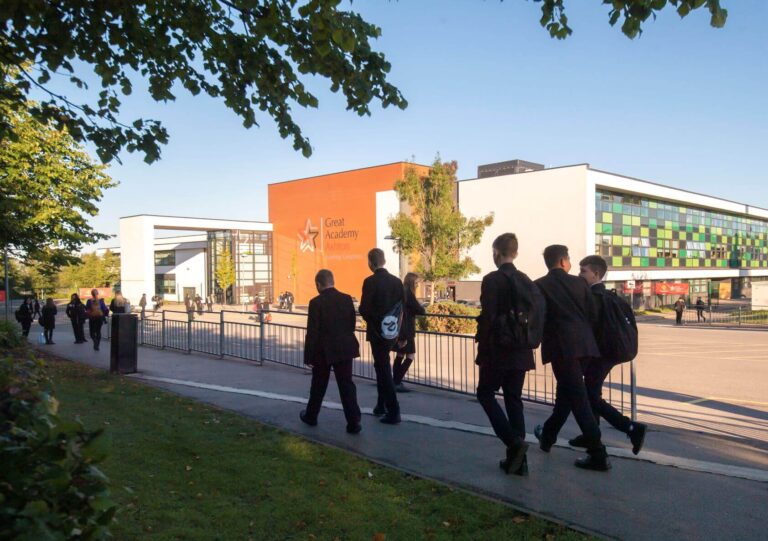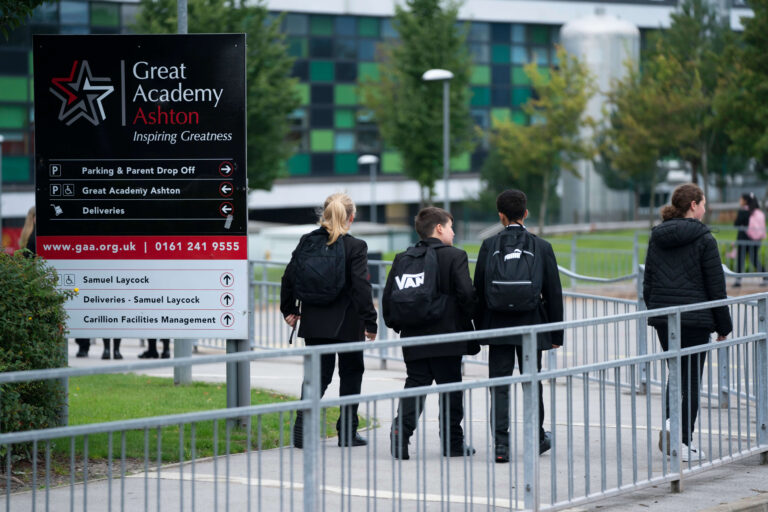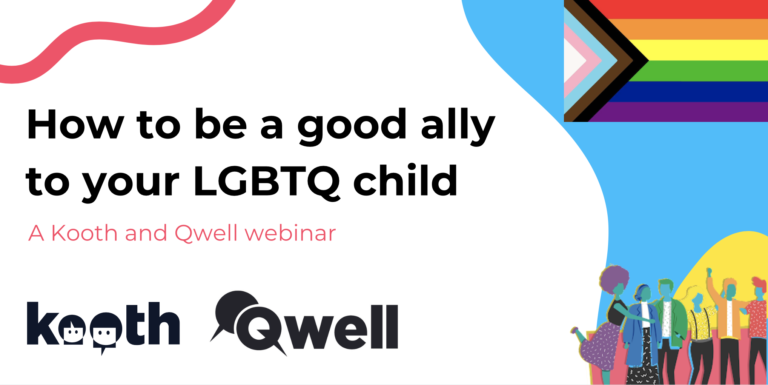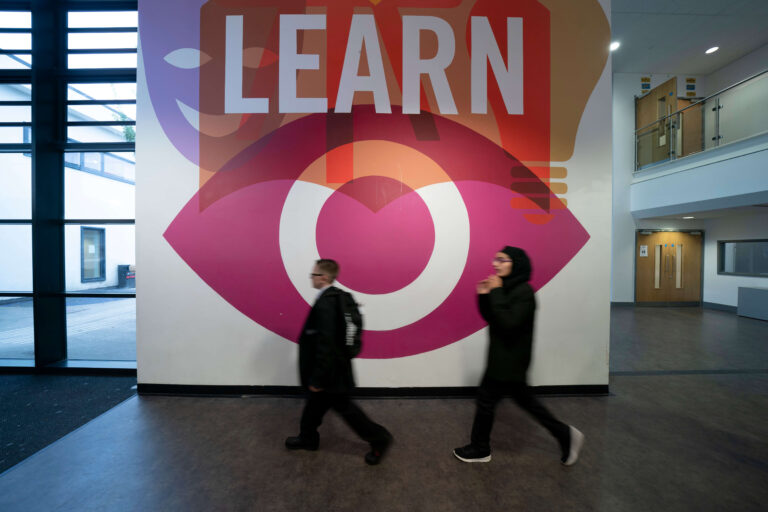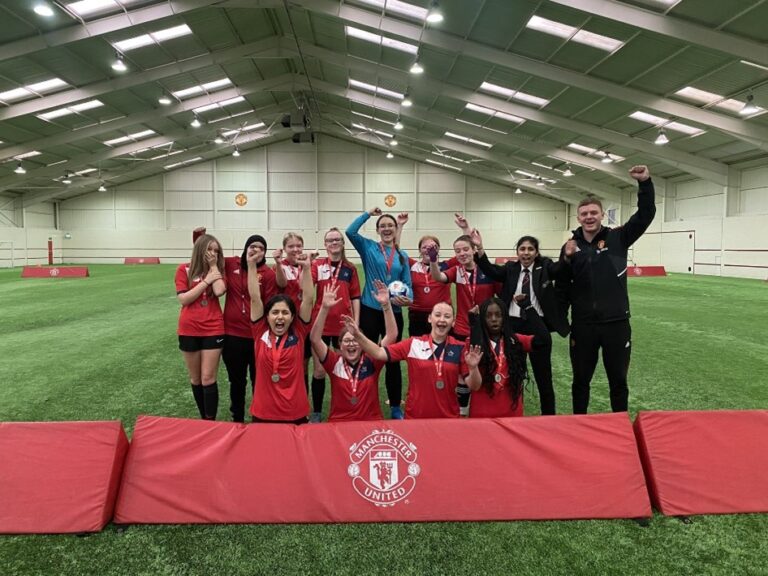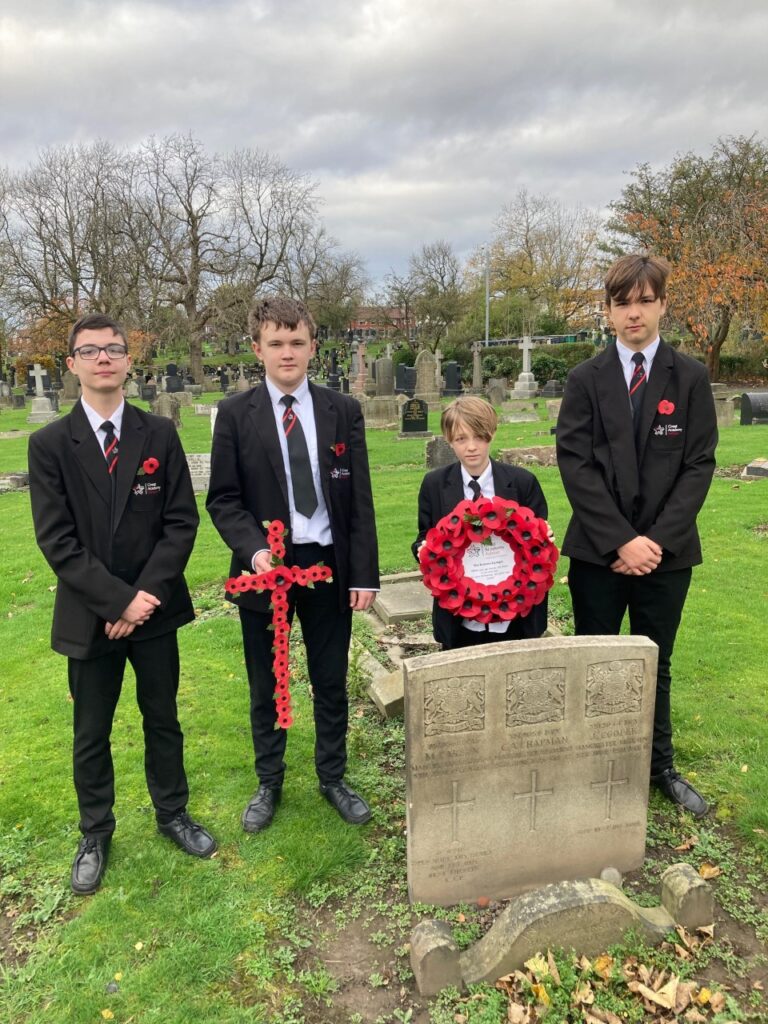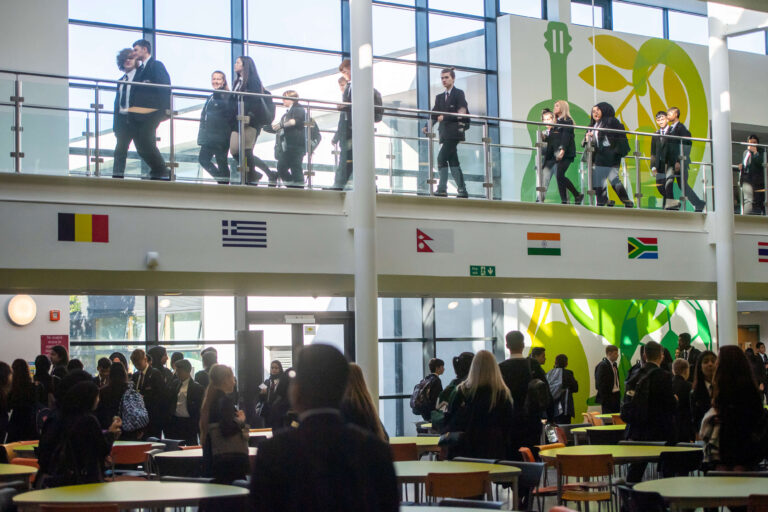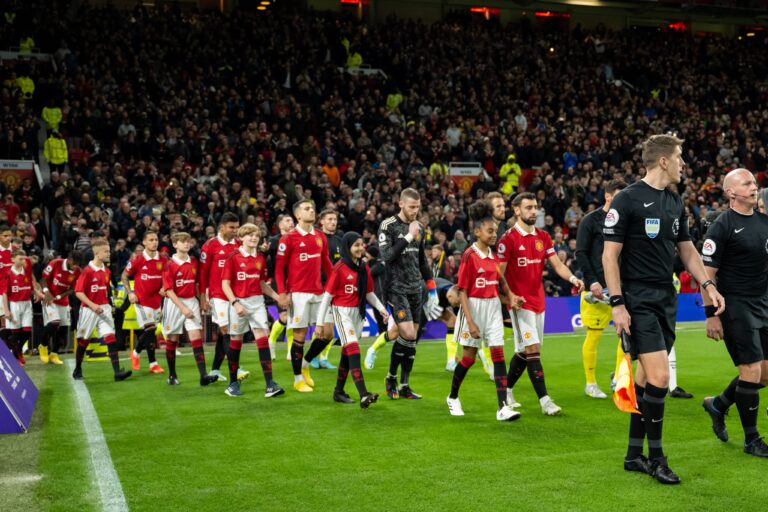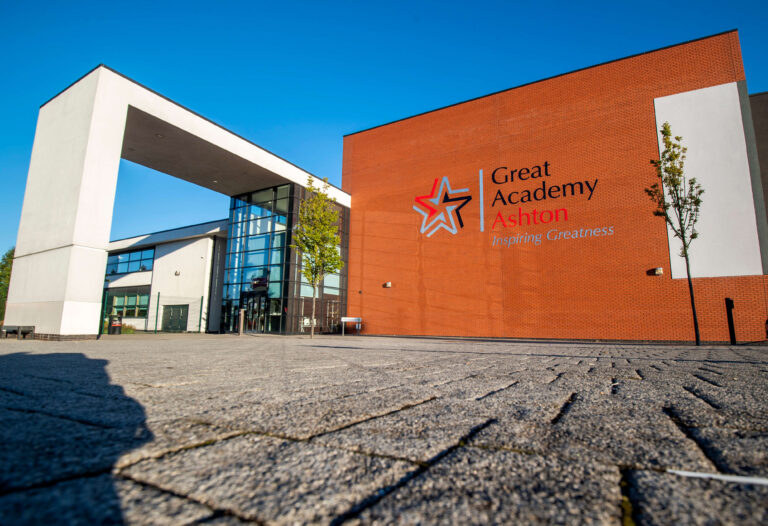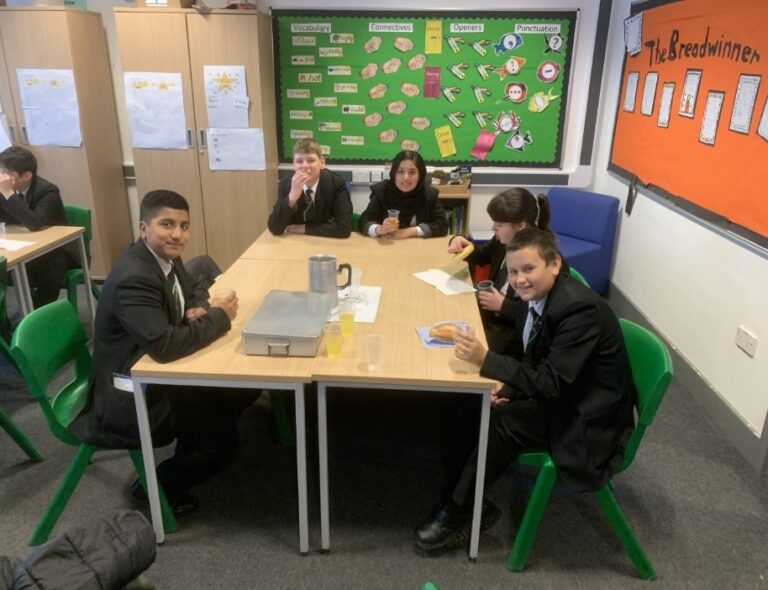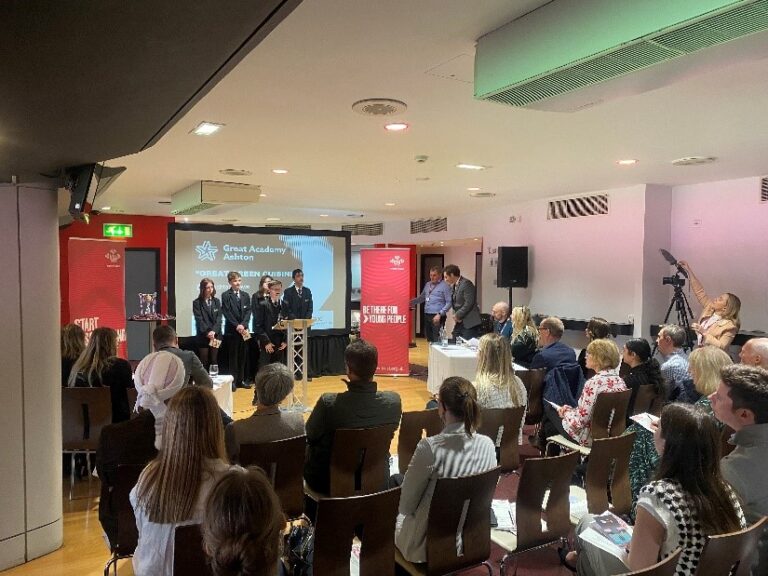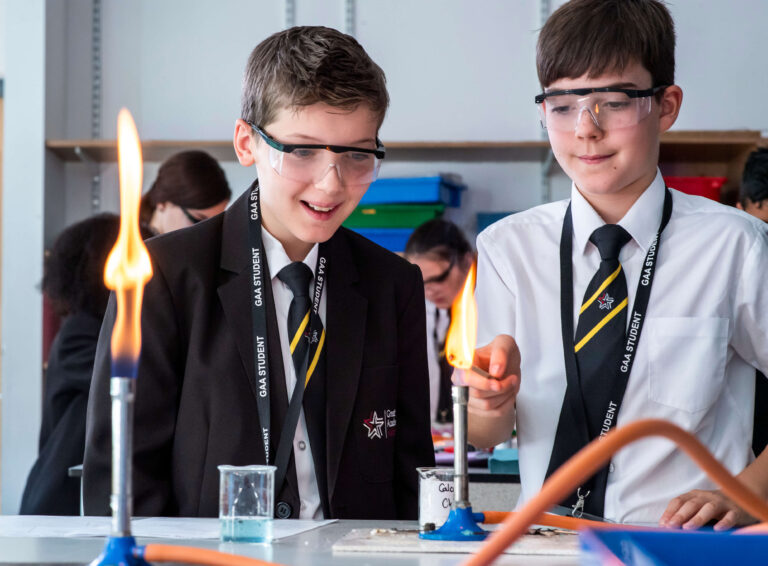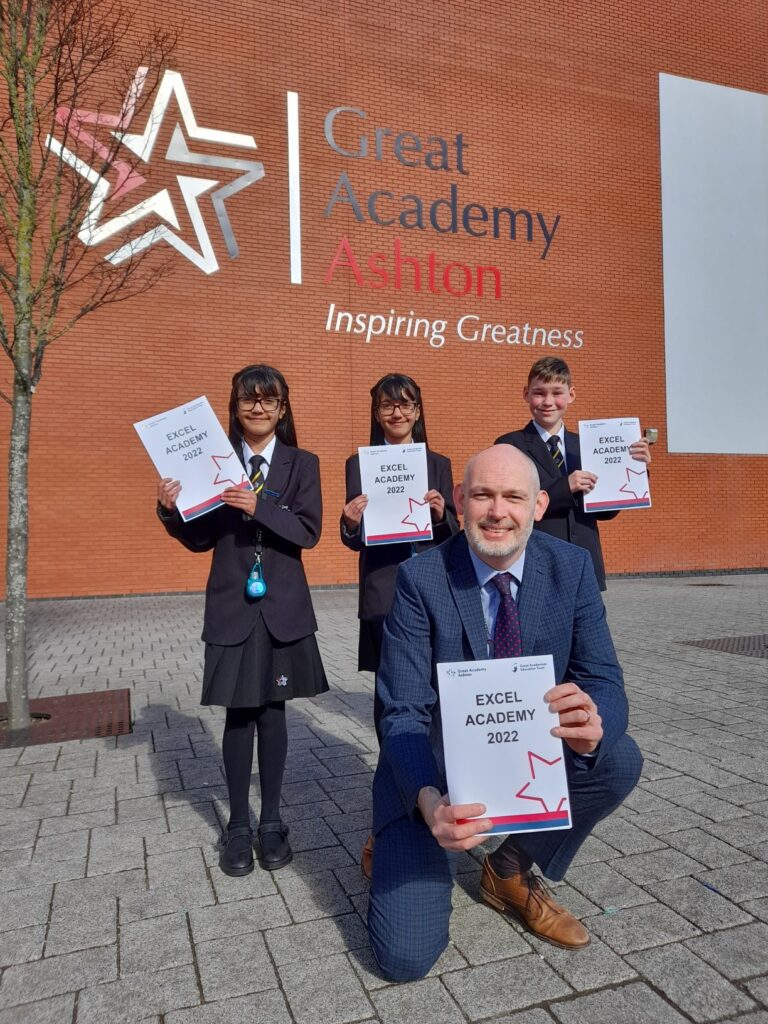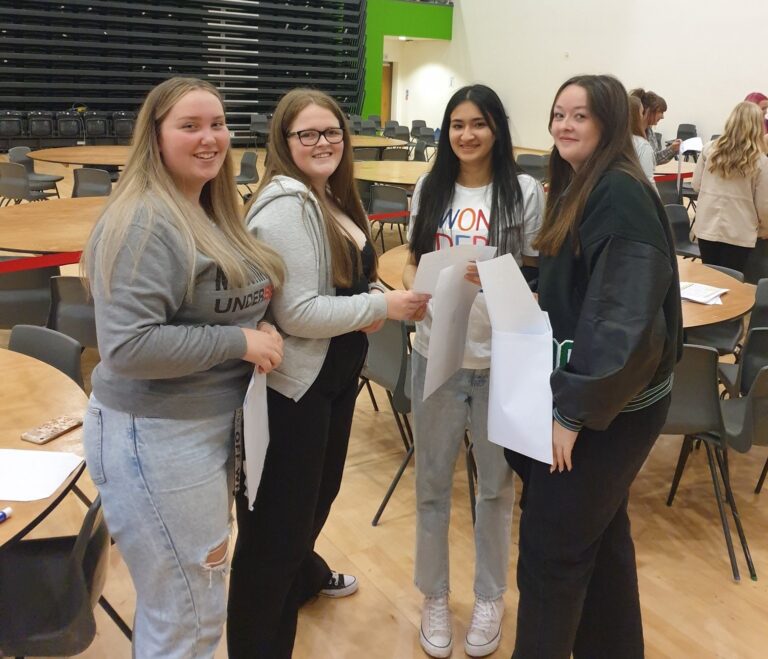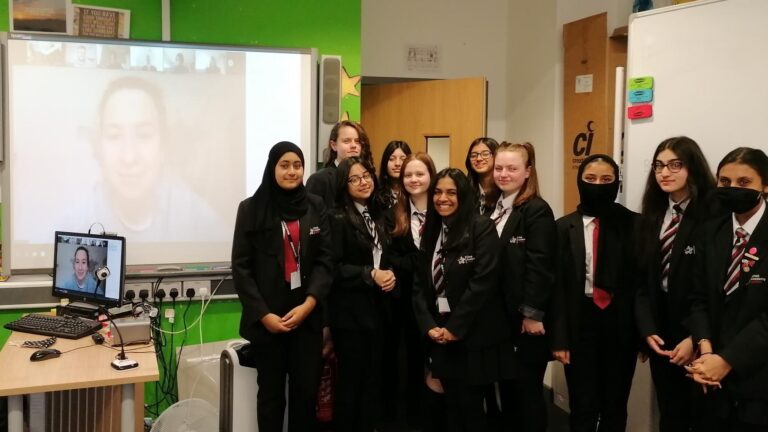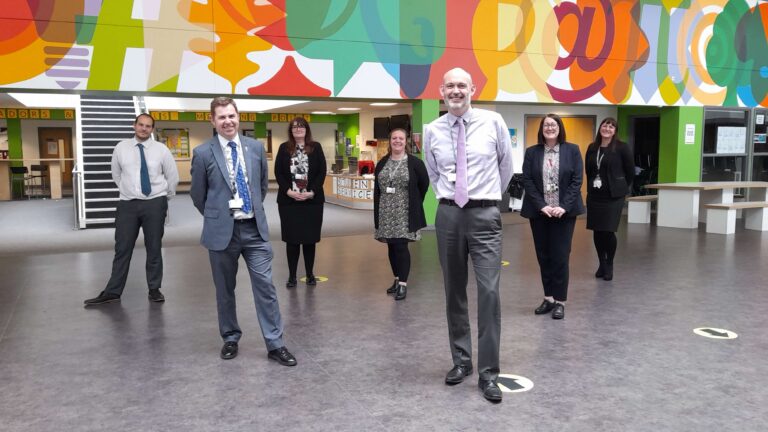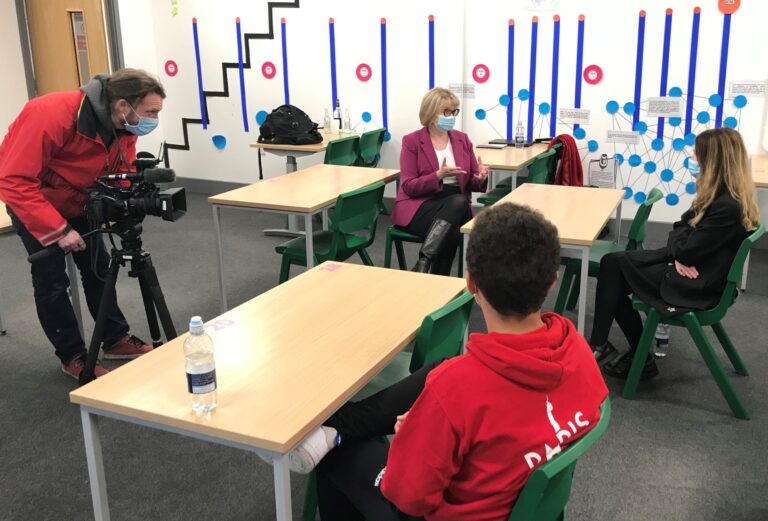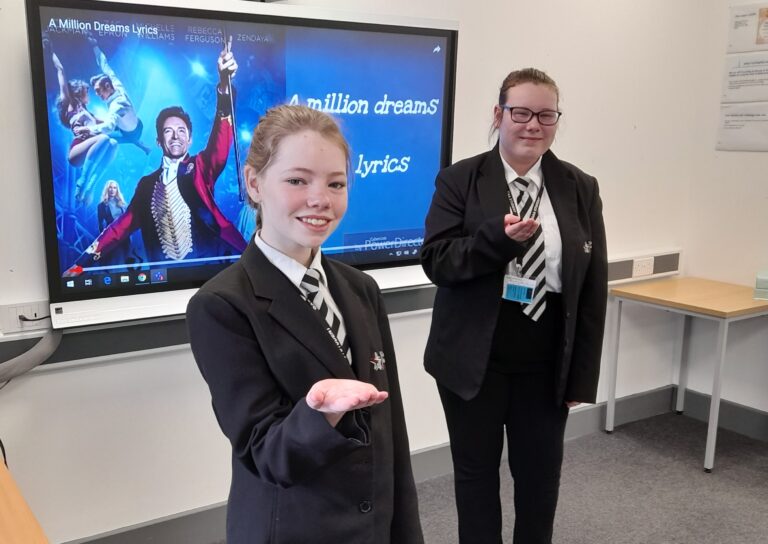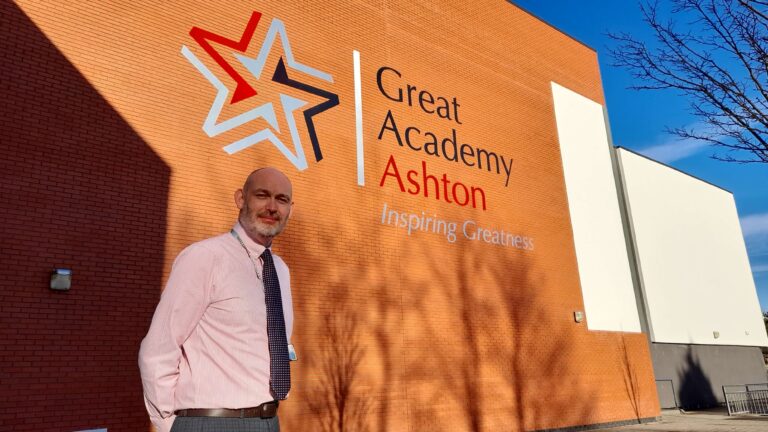Curriculum
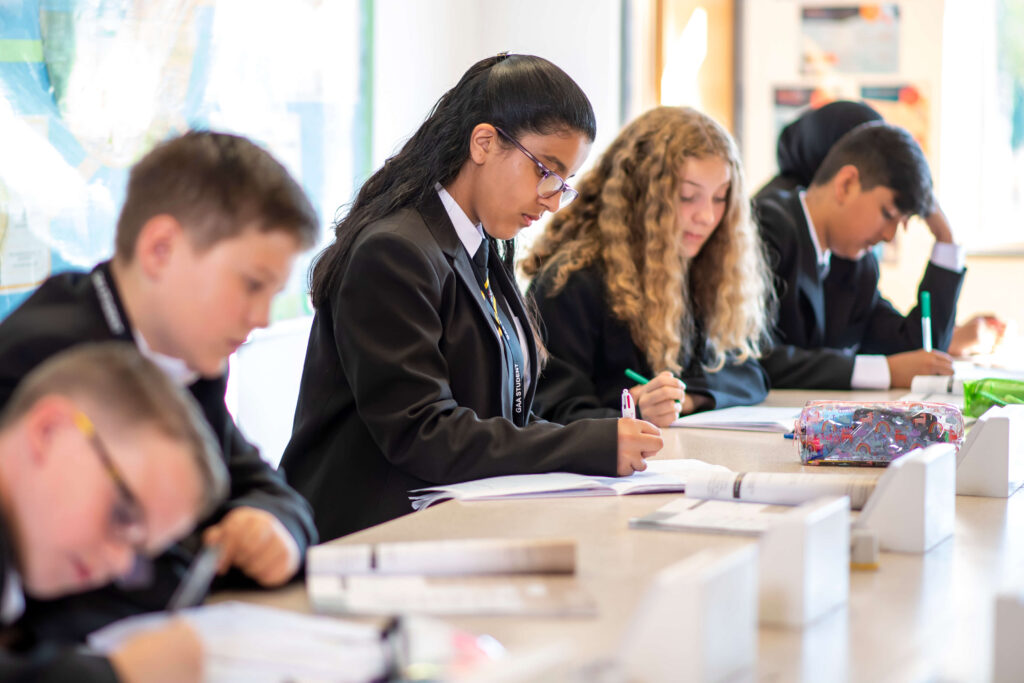
Great Academy Ashton Curriculum Intent Statement
The aim at Great Academy Ashton is to metamorphosise the life chances of the young people in the community we serve and to support the transformation of our community; a community which is truly diverse both culturally and economically.
The GAA Curriculum is underpinned by our GREAT Values: Genuine, Respect, Excellence, Achievement, Together. In practice, this means that our school curriculum, i.e. everything our students do from the moment they arrive in Year 7 until they leave us in Year 11, is designed so that they develop as an integral part of the “GAA Family”.
We firmly believe that all children, irrespective of their starting point, are entitled to a broad and ambitious curriculum. To that end, our curriculum is designed to provide children with the core knowledge they need for success in education and later life, to maximise their cognitive development, to develop the whole person and the talents of the individual and to allow all children to become active and economically self-sufficient citizens. Our curriculum is designed to achieve this by giving our students the best learning experiences, the best outcomes and the greatest of participation and celebration so that they will achieve in line with the best students nationally.
Throughout all of the skills, knowledge and experiences that our curriculum embeds, economic circumstances will never be a barrier. We ensure that all students, no matter what their background, are able to have experiences and opportunities in line with the most prestigious schools in the country, within a safe, caring and empowering learning environment.
Our curriculum provision is established so that personal family economic circumstances will never be a barrier to our students’ success. We serve a very challenging community in terms of economic, employment and family stressors and our school provision is designed to ensure that no student is left behind. No matter what the background or economic and family circumstances, our provision will enhance and promote success.
Our students do not financially contribute to any aspect of our curriculum; peripatetic music is provided by our school, all Food Preparation & Nutrition and Design Technology resources are provided by the school, all students receive their own personalised Shakespearean Play to embed a love of academic literature, our Duke of Edinburgh provision is provided fully by the school, etc. financial circumstances will never be a barrier to full engagement in the rich, diverse and life enhancing opportunities within our school.
By teaching our curriculum well we develop students’ cultural capital: “the essential knowledge that students need to be educated citizens, introducing them to the best that has been thought and said and helping to engender an appreciation of human creativity and achievement.” (DFE National Curriculum, 2014)
We draw on Michael Young’s distinction between ‘the knowledge of the powerful’ and ‘powerful knowledge’: “Powerful knowledge ensures that people are not trapped by the limits of their experiences.” Yet we also want all students to be able to see themselves in our curriculum. Our curriculum includes a commitment to this dual function of curriculum: that all students see themselves in our curriculum, and our curriculum takes all students beyond their immediate experience.
In addition to a focus on cross-curricular skills, GAA uses the co-curriculum to enhance wider personal development and promote positive attitudes to learning. We strive for our students to develop their personal skills and qualities in order that they may grow into positive, responsible young adults who can work and cooperate well with others. In its entirety, the curriculum is designed to make sure students feel valued and respected so that they in turn learn to value those around them and develop an acute sense of social responsibility which in time has a positive impact upon their own community and the wider British society.
Our curriculum is well understood, well planned and well thought out at all levels to meet the
needs of each individual student. In order to facilitate long-term learning, the core skills and knowledge for each subject are spaced and interleaved throughout our curriculum. Additionally, classroom pedagogy is built around the effective use of retrieval practice in order for students to remember knowledge over time.
At GAA we achieve success through ADVOCACY, every member of staff serves as the advocate of our young people, to promote, enhance and support their successful and sustainable achievement and progression.
Implementation:
Subject specialism is at the heart of our curriculum, and you will see differences in the way that the curriculum is constructed and assessed in different subjects. Standardised written assessments, for example, play less of a role in performance subjects such as art and physical education. The stability of our curriculum allows subject expertise to develop over time, and we are careful to provide sufficient time for teachers of the same subject to plan together and collaborate.
Further subject specialism is provided by GIST subject advisers. These advisers are subject experts who help teachers link the subject discipline to our students’ daily experience in the classroom. Subject advisers meet regularly with Heads of Subject and provide curriculum resources to support the implementation of the subject curriculum.
As a mastery curriculum our students study fewer topics in greater depth. A 3-year Key Stage 3 provides students with the time and space to gain a secure understanding that builds over time in each subject. In our lessons we expect to see all students grappling with the same challenging content, with teachers providing additional support for students who need it. Rather than moving on to new content, our higher attainers produce work of greater depth and flair.
Our approach to teaching and learning supports our curriculum by ensuring that lessons build on prior learning and provide sufficient opportunity for independent practice.
Barak Rosenshine’s Principles of Instruction have greatly contributed to the GAA ‘Golden Threads’ of teaching – a framework for excellent teaching. These principles support the implementation of the curriculum by ensuring that students regularly recall prior learning and address misconceptions. You will often see this at the start of our lessons.
Dylan Williams’ approaches to formative assessment, such as ‘cold calling’ and ‘no opt out’ are the practical application of the Rosenshine Principles in the classroom. Embedding a repertoire of formative assessment approaches ensures teaching is reflective to the needs of each individual learner and supports the application of knowledge, understanding and skills.
We are particularly conscious of the role that literacy and vocabulary plays in unlocking the whole curriculum. Students in Year 8 receive their own personal copy of the Shakespearean play they are studying with a personal message inscribed from the Principal. In Year 7 we provide our future students with their own transition reading book to support literacy and language acquisition transition and we also provide our “Rising 7” students with their maths and English exercise books from June of Year 6 onwards to support the continuation of their learning progression. Our “Year 5 Excel Academy” embeds the learning transition programme to ensure continuity of progression from KS2 into KS3.
Our ambitious KS3 curriculum is underpinned by our “GAA Key Words” and “GAA KS3 Reading List”. Our teachers explicitly teach the meaning of subject-specific language, and we expect lessons to contain challenging reading and writing. Knowledge organisers provide students with key information that they are expected to learn and recall with fluency, enabling them to develop their understanding of key concepts outside of their lessons.
In order to allow the mastery approach to be effective (i.e. children learn what they are expected to in the year they are expected to), early catch-up is essential: we aim to promptly identify and support students who start secondary school without a secure grasp of reading, writing and mathematics so that they can access the full curriculum.
Everything from which children learn in school – the taught subject timetable, the approach to spiritual, moral, social and cultural development, the co-curricular provision and the ethos and ‘hidden curriculum’ of the school – are to be seen as part of the school curriculum.
How we measure and secure continuous improvement for all (impact)
Assessment and curriculum go hand in hand. We view the curriculum as the progression model, which means that each subject’s curriculum ‘sets out the journey that a child goes on to get better at the subject’ (Fordham). We therefore seek evidence of progress not in spreadsheets or exam rubrics, but from speaking to students and looking at their work: have they learnt the things we’ve taught them?
Assessment is carried out regularly utilising formative assessment techniques such as low stake quizzing, questioning, do it now and self-assessment techniques.
In practical subjects, students are assessed by on-going assessment of practical and investigative skills.
The majority of the assessment that students experience at GAA is formative assessment within lessons i.e. responsive teaching, as teachers systematically check for understanding of the components of each subject and adjust their teaching accordingly. This method of assessment enables teachers to monitor student learning and to provide ongoing feedback that can be used to improve their teaching and further enhance students’ learning.
Summative assessment, taken typically three times per year, allows students to demonstrate their growing understanding of their subjects and enables teachers to assess the impact of their teaching.
Progression between Key stage 3 and Key stage 4:
We operate a 3:2 curriculum model with three years assigned for the delivery and mastery of our KS3 programmes of study. These units of work have been carefully crafted to ensure that they go beyond the requirements of the National Curriculum. Students study the full range of courses at KS3 which then narrows slightly into KS4 when options are taken. However, an ambitious academic core remains at the heart of our KS4 curriculum and the EBACC pathway is open to all.
Throughout the five years that a student will study with us, they will also have full access to our Personal Values, PE and RE curriculum, placing the spiritual, social, moral and physical development of our students at the very heart of our curriculum intent. All students are encouraged to participate in our Student Leadership opportunities, working to become a Student Ambassador in Key Stage 3 and a Student Champion in Key Stage 4. The range of student leadership opportunities are vast, from Head Students to council representatives, from sports ambassadors to Upstanders, from peer mentors to eco-group champions. We place the advocacy of our young people at the heart of our school curriculum.
(Key Stage 3 Fortnightly timetable, 50 periods)
| English | 8 Hours | |||||
| Maths | 8 Hours | |||||
| Science | 8 Hours | |||||
| EBacc | French | Geography | History | ICT | Spanish | |
| Year 9 2 hours | 3 Hours | 3 Hours | 2 Hours | Year 9 2 hours | ||
| Year 8 4 Hours | Year 7 4 hours | |||||
| Performance & Expressive Arts | Art | Dance | Design & Technology | Drama | Music | PE |
| 2 Hours | Year 7 1 Hour | Year 7 & 8 1 Hour | 2 Hours | Year 7 1 Hour | Year 7 & 9 4 Hours | |
| Year 9 2 Hours | Year 8 & 9 1 Hour | Year 7 & 8 2 Hours | Year 8 5 Hours | |||
| Personal Values | Personal Values | Religious Education | ||||
| Year 7 2 Hours | Year 7 1 Hour | |||||
| Year 8 & 9 1 Hour | Year 8 & 9 2 Hours |
Our reading programmes include tutor time guided reading and Lexonik which are designed to ensure our students take enjoyment from reading and are exposed to a variety of texts which challenge and inspire them. All of our students at KS3 access Reading Plus weekly to further enhance and develop their personalised literacy needs. They experience creativity aimed to enthuse through subjects such as Art, PE, Drama, Music and Technology. High quality Personal Values, RE and health education ensures every student is equipped with the knowledge, skills and understanding to prepare them to play a full and active part in society.
With an emphasis on aspiration and comprehensive CEIAG provision, by the end of Key Stage 3 students will be able to make sensible subject option choices because they know what they enjoy and excel at, but also what they might need later on in life because they have an emergent idea of what area they want to study in or work in later in life.
Key Stage 4
A student at Key Stage 4 will have experienced a broad variety of topics at KS3, but also studied many in-depth, developing expertise in a range of subject specialisms which will enable them to make informed decisions as to what to study beyond key stage 4.
The structure of the curriculum for Year 10 and 11 students has 2 distinct parts:
Part 1
The core curriculum is compulsory for all students:
- English Language and English Literature
- Mathematics
- Science (students will be directed to one of two pathways in Science. This will depend on their performance in Year 9):
- Triple Award Science: Students can opt to take this via part two of the curriculum and via additional lessons; students will take three separate GCSEs in Science – one in each in Biology, Chemistry and Physics, or
- Combined Science (Trilogy). This course is made up of separate Biology, Chemistry and Physics modules. A double grade from 9-9 to 1-1 will be awarded.
- Core Physical Education for 2 periods per fortnight
- Personal Values for 2 periods per fortnight
Part 2
Students select four subjects from a range of options which they study for 5 hours per fortnight per subject.
| Options From: | |
| EBacc Faculty | Business Studies BTEC Business Enterprise Computer Science French History Geography |
| Performance and Expressive Arts Faculty | Art & Photography Design & Technology Food Preparation & Nutrition BTEC/GCSE Music BTEC Performing Arts Sport Studies ICT |
| Personal Values Faculty | Citizenship Religious Studies |
| Other | Film Studies Duke of Edinburgh Bronze Award |
Our curriculum contact is Mrs K Larsen-Taylor (Vice Principal) kim.larsen-taylor@gaa.org.uk
Courses and Exam Boards
Subject Pages:
Year 9 Guided Pathways 2025-26
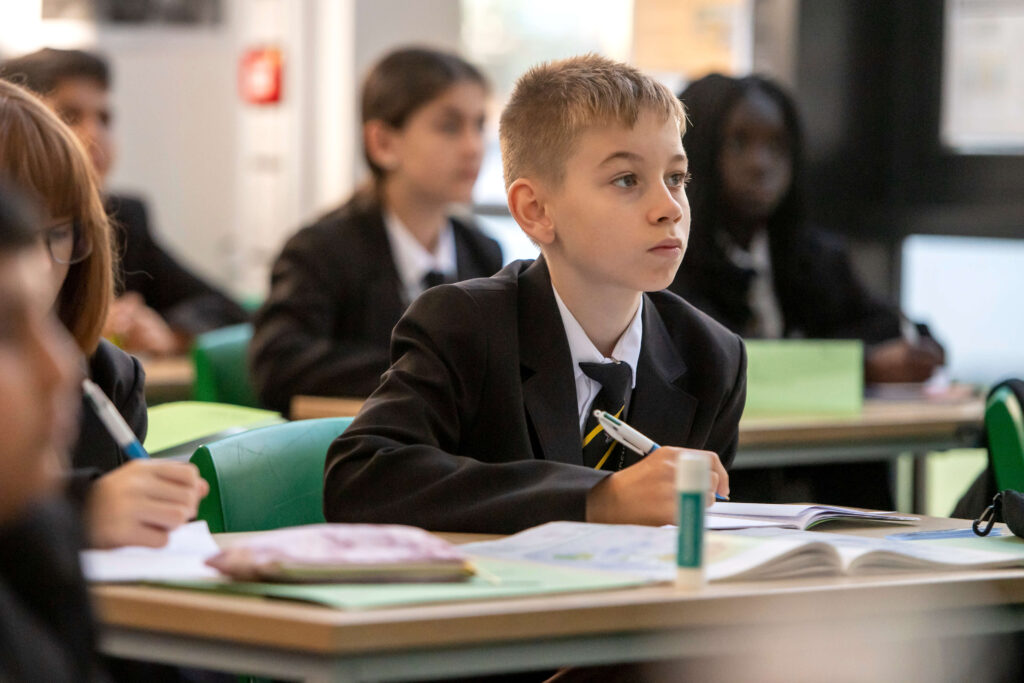
Remote Learning Provision
To see how the school is providing remote learning for students
